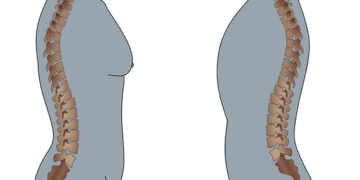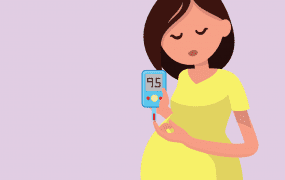Dr. Sushil Jain
Since the Covid-19 pandemic began, researchers have found that most people are having sleep disorders and the number of cases are on the rise. Few studies affirm that sleep disorders are one of the side affects of Covid infections. Add to it, the last couple of years have been traumatic for most people due to Covid. They have been living stressful lives leading to unhealthy habits like alcohol abuse, higher screen time, irregular eating habits and not being able to maintain work-life balance. These are critical factors that add to sleeping problems in today’s times.
People having sleep disorders struggle with issues that impair their sleep and not let them have proper and restful sleep which can cause them to sleep during daytime. Common sleep disorders like insomnia, restless legs syndrome, narcolepsy and sleep apnea can affect every aspect of one’s lives. If you are not sleeping well or getting quality sleep at night, it will leave you feeling more tired and sluggish during the day.
People who are deprived of sleep face difficulties in decision making, low quality performance at work and slower reaction times, which may result in accidents including on roads and even work-related. They may also gain weight and get prone to diabetes or heart disease if they continuously suffer from sleep loss.
Some of the common sleep disorders are:
Insomnia: It is a sleep disorder where people find it difficult to fall asleep. People having insomnia go through a few of the symptoms listed below-
— Difficulty falling asleep
— Waking up in between at night and finding it difficult to sleep again
— Waking up too early in the morning
— Having irregular sleep
— Facing issues during the day such as sleepiness, not being able to perform well at work, feeling fatigue and having mood swings etc. due to poor sleep
Obstructive sleep apnea (OSA): Obstructive sleep apnea occurs when the muscles that support the soft tissues in your throat, such as your tongue and soft palate, temporarily relax. People having OSA usually go through symptoms snoring while sleeping, feeling sleepy and restless during the day, feeling fatigue and finding it hard to concentrate. Untreated OSA can cause serious health problems such as high blood pressure, heart disease, stroke.
Restless legs syndrome (RLS): It is a sleep disorder that causes an urge to move the legs. Since RLS occurs in the evening it causes difficulty in falling asleep and staying asleep.
Narcolepsy: It is a disorder that causes difficulty in controlling excessive sleep in relaxed surroundings. People who have a problem of narcolepsy face issues like falling asleep during the daytime and also not being able to control it.
Diagnosis: If you have sleep disorder your healthcare provider would suggest you to visit a sleep disorder clinic. A sleep specialist may suggest you to undergo a sleep study after your symptoms are reviewed.
A polysomnogram (PSG) or a sleep study is a test that electronically records and transfers specific activities that you do physically while sleeping. The recordings of the same are then analysed by a qualified healthcare provider to know whether or not you have any issues while sleeping.
Treatment: There are a variety of treatments recommended by healthcare providers including counselling and medications and/or supplements. OSA treatment is taken to make sure air is not blocked during sleep. Usually people having OSA are recommended to reduce weight by doing exercises. The severity of OSA decreases when you loose weight. A continuous positive airway pressure (CPAP) is the usually used for treating OSA. It is detected through a face mask which is worn at night which delivers positive airflows at night.
It is important to sleep well and these are few steps that can be practiced to get decent sleep at night.
- Create an optimal sleep environment by making sure that your bedroom is comfortable, cool, quiet and dark.
- Think positive. Do not think anything bad or negative while going to sleep.
- Avoid using your bed for anything other than sleep and intimate relations. Do not work, or eat in your bedroom.
- Establish a regular bedtime and a relaxing routine each night.
- Stop clock watching.
- Avoid naps. You can take a nap if you feel very sleepy. But sleep for less than 30 minutes and don’t sleep later than 3 p.m.
- Avoid stimulants (coffee, tea, soda/cola, cocoa and chocolate) and heavy meals for at least four hours before bedtime.
- Avoid alcohol and tobacco and exercise regularly
The writer is Pulmonary Consultant at Masina Hospital, Mumbai
Subscribe on WhatsApp & Telegram to receive real time updates
Follow Health In Five on LinkedIn, Facebook, Twitter & Instagram






































